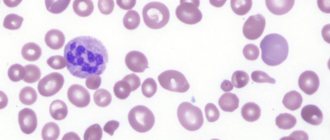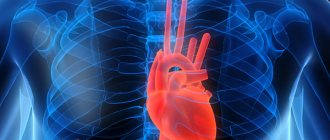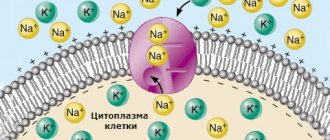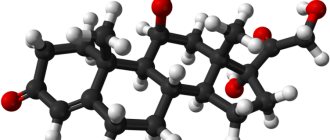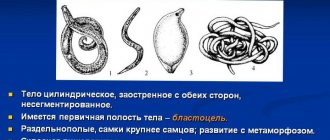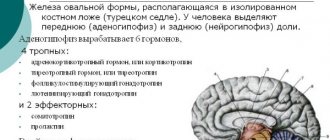Copper enters the human body mainly through food. Large amounts of it are found in legumes, seafood, cabbage, nettles, potatoes, corn, spinach, carrots, apples, and cocoa beans.
About 95% of copper entering the body is absorbed in the gastrointestinal tract. In the blood, it binds to amino acids, serum albumin, transport protein transcuprin and ceruloplasmin.
The optimal rate of copper intake into the body is 2-3 mg per day. With a significant intake of copper into the body, excess copper develops. Moreover, the threshold of its toxicity for humans is 200 mg per day.
Excess copper in the body is manifested by abdominal pain, kidney and liver failure, nausea, vomiting, and neurological disorders. To treat excess copper in the body, enterosorbents are used.
Fatigue and weakness
Copper deficiency can be one of many causes of fatigue and weakness. This mineral is necessary for the absorption of iron in the intestines ().
When copper levels are low, the body can absorb less iron. This can cause iron deficiency anemia, a condition in which the body is unable to carry enough oxygen to its tissues. Lack of oxygen can make you weaker and feel tired.
Several animal studies have shown that copper deficiency can cause anemia (, ). Cells also use copper to produce adenosine triphosphate (ATP), the body's main source of energy. This means that a lack of copper in the body can affect your energy levels, again contributing to fatigue and weakness (,).
Fortunately, eating copper-rich foods can help eliminate anemia caused by a lack of this trace mineral ().
Conclusion:
Copper deficiency can cause iron deficiency anemia or reduce ATP production, leading to weakness and fatigue. Fortunately, this can be corrected by increasing your copper intake.
Causes of copper deficiency
Lack of copper in the body can be acquired or hereditary. When acquired, causes may include malnutrition and poor nutrition, malabsorption, or excessive intake of zinc.
Violation of rules for taking food additives
Copper absorption may be impaired by very high iron intake, usually from dietary supplements. Zinc is another nutrient that interacts closely with copper. Like iron, the human body needs copper and zinc in a healthy balance, as too much zinc can reduce copper levels.
So always – if you take iron supplements, then you need to take zinc and copper at the same time. Similarly with copper - if you use it as a supplement - you need to take zinc and iron at the same time. All these three minerals are spread over a period of at least 3 hours. You cannot drink at the same time, as they will compete with each other for digestibility.
Malabsorption
Copper deficiency is also sometimes present in people suffering from serious digestive disorders that impair nutrient absorption, such as Crohn's disease.
Banal hypoacidity will also affect copper absorption. Therefore, it is important to know your level of acidity in the stomach in order to correct this situation if something happens.
Protein deficiency
Other causes may include severe protein deficiency in childhood, persistent infantile diarrhea (usually associated with a milk-restricted diet), gastric surgery, and vitamin B12 deficiency.
Taking COCs
Long-term use of oral contraceptives has been shown to disrupt the balance of copper in the body, resulting in excessively high or low copper levels.
Related articles:
- Lack of iron in a woman’s body, how to prevent it
- Molybdenum for the body - why it is needed, functions,...
Early gray hair is one of the symptoms of copper deficiency in the body
Frequent illnesses
People who get sick often may have a copper deficiency. This is because copper plays an important role in maintaining a healthy immune system. When levels of this mineral are low, your body may have trouble creating immune cells. This can lead to a sharp reduction in the number of white blood cells, impairing the body's ability to fight infection ().
Research has shown that copper deficiency can significantly reduce the production of neutrophils, which are white blood cells that act as the body's first line of defense (,).
Fortunately, eating more copper-rich foods can help reverse these effects.
Conclusion:
Copper deficiency can weaken the immune system, which can lead to frequent colds and infections. This can be corrected by increasing copper intake.
Why We Need Copper: Top 10 Health Benefits of Copper
As you can see, a lack of copper in the body, the symptoms of which are not the most pleasant, can lead to serious health problems. Copper is the third most abundant mineral in the body, but the body cannot create it on its own. The main way to obtain copper is by eating certain foods. Copper is found mainly in the liver, kidneys, heart and brain of humans and animals.
Want to know what copper does to your body? It plays an important role in maintaining a healthy metabolism and promotes growth and repair of the body. Copper helps produce melanin, build bones and connective tissue. The body also needs copper to properly carry out many enzymatic reactions and maintain healthy connective tissue. The body eliminates copper through urine and intestines.
There are many benefits of copper that have a significant impact on human health, including:
Supports Healthy Metabolism
Copper plays a vital role in maintaining a healthy metabolism as it ensures the proper functioning of many important enzymes. Enzyme reactions are necessary for our various organ systems to maintain normal metabolism because they allow nerves to communicate with each other. This is one reason why copper enzymes are especially abundant in the tissues of the body with the greatest metabolic activity, including the heart, brain and liver.
Copper is important for the nervous system, cardiovascular system, digestive system and almost every other part of the body due to its effect on metabolic processes. It is important for the synthesis of adenosine triphosphate (ATP), the body's fuel source. Therefore, copper deficiency can lead to sluggish metabolism, low energy intake, and other signs of poor metabolic health.
Provides the body with energy
ATP is a fuel that is produced in all cells of our body. It is created in the mitochondria of cells, and copper is essential for the proper production of ATP. Copper acts as a catalyst in the reduction of molecular oxygen to water, which is a chemical reaction that occurs during the creation of ATP.
Copper also makes protein more available to the body, releasing iron into the blood, making it better absorbed. Because it affects ATP and protein metabolism, it is important for the overall healing of muscles, joints and body tissues. Copper also helps maintain high energy levels.
Necessary for proper brain function
Research suggests that copper affects several important brain pathways involving the neurotransmitter dopamine. Your body needs dopamine to maintain energy, maintain a good mood and appearance, and help you focus. Dietary copper deficiency in humans is associated with decreased dopamine levels.
Without enough copper in the body, signs of copper deficiency may occur, such as low metabolic activity, fatigue, trouble concentrating, low mood, and more. This is a sign that the network of reactions and metabolic pathways involving copper is affected.
Weak and brittle bones
Osteoporosis is a disease characterized by weak and brittle bones. It becomes more common with age and is associated with copper deficiency. For example, an analysis of eight studies including more than 2,100 people found that patients with osteoporosis have lower copper levels than healthy adults ().
Copper is involved in the processes that create the crisscrossing beams inside your bones. These criss-crossing beams keep your bones healthy and strong (, ,). Moreover, copper stimulates the body to produce more osteoblasts, which are cells that help reshape and strengthen bone tissue (,).
Conclusion:
Copper is involved in processes that help strengthen bone tissue. Copper deficiency can contribute to osteoporosis, a disease in which bones become hollow and porous.
Memory and learning problems
A lack of copper in the body can make it difficult to remember, leading to learning problems. This is because copper plays an important role in brain function and development. It is used by enzymes that help supply the brain with energy, aid the brain's defense system, and relay signals to the body ().
Conversely, copper deficiency has been linked to diseases that inhibit brain development or affect the ability to learn and remember, such as Alzheimer's disease (, ). Interestingly, the study found that people with Alzheimer's disease had 70% less copper in their brains than people without the disease ().
Conclusion:
Copper helps ensure optimal brain function and development. Therefore, copper deficiency can cause problems with learning and memory.
Lack of copper in the body
There was already a post about “Metal Treatment in Ayurveda”. There I promised to write in more detail about copper, since its effect on our body is very great, and with a lack of copper, problems arise, the causes of which are difficult to calculate. While writing my last post about collagen, I came across some important information. It turns out that copper is involved in the synthesis of collagen, which is necessary to maintain the musculoskeletal system in normal condition, to maintain turgor (elasticity) of the skin, ligaments (which is especially important when internal organs prolapse),
Thanks to copper, our blood vessels remain strong and elastic, as copper is involved in the formation of elastin, the connective tissue that forms the inner layer of blood vessels. Copper is essential for maintaining healthy, shiny hair and nails. True, bad skin, falling hair, brittle nails may indicate digestive disorders and no micronutrient supplements will help in this case.
Copper strengthens bone tissue, preventing the development of osteoporosis. When copper supplements are administered during fractures, copper applications are made to the fracture site, recovery is faster. Also, people with increased fragility of bones, prone to fractures, are less injured after introducing a large number of foods and copper supplements into the diet.
Copper plays an important role in hematopoiesis. Without copper, the conversion of iron into hemoglobin is impossible. Copper helps in transporting iron from the liver, maintaining normal blood composition. If there is a lack of copper in the body, the transport of iron will be disrupted, which can lead to serious problems. Copper is involved in the synthesis of various substances and protein metabolism. Proteins and carbohydrates are absorbed better in the presence of copper. Insulin activity increases with increasing copper levels in the body.
Copper is very important during fetal growth. During pregnancy, copper accumulation in the fetal liver occurs most rapidly in the 3rd trimester of pregnancy, and in a newborn, copper reserves in the liver are 4 times higher than in an adult. Such reserves are necessary for the proper development of the child after birth. In newborns, there is self-regulation of the necessary copper reserves, and the increased copper content in the infant’s liver returns to normal after 4-6 months.
Copper deficiency in a pregnant woman can lead to problems in the newborn (low weight, lack of muscle and fat tissue - vata deficiency). In premature babies, the required supply of copper does not have time to accumulate, so problems may arise. Usually, correct nutritional formulas are recommended that are enriched with minerals, including copper.
For an adult in relatively normal condition and normal nutrition, the copper that enters the body with food and drinking water is quite sufficient. Many experts argue that a healthy person does not need to take vitamins and microelements (“Are there any benefits from multivitamins?”). The body will take everything it needs from the simplest foods, and synthesize the rest itself. This is ideal. But those who have everything perfect don’t read blogs like this one. If you’re reading this, it means your condition is not entirely ideal and the body may lack something (including microelements) for various reasons, such as metabolic disorders. True, the body does not synthesize copper and requires its supply from the outside.
Copper stimulates the activity of pituitary hormones and maintains the normal functioning of the endocrine system.
Since copper is stored in different organs and is involved in many processes, its deficiency has a very noticeable effect on health conditions, because the functioning of all vital organs is disrupted.
The antibacterial properties of copper are widely known ; they are better than those of gold and silver. Research at Southampton University has shown that E. coli in water in stainless steel dishes thrives for several months. At the same time, the same water is purified from E. coli in a copper bowl in 4 hours (at room temperature). At high temperatures in copper dishes, E. coli is destroyed in 4 days.
In the Middle Ages, when entire cities died out from cholera, not a single person fell ill in the copper smelting areas. During military operations, those warriors who had copper armor died from wounds much less often than others, since copper helped the rapid healing of wounds, preventing them from festering.
These antibacterial properties of copper are widely used by those who are aware of it. In India they try to store water in copper jugs. People wash their faces with this water and wash their wounds. They drink it immediately after waking up and cook with it. It is believed that copper water balances all three doshas - vata, pitta and kapha.
Copper protects the digestive system from inflammation.
Contraceptive devices are made from copper. Copper interferes with sperm motility and damages sperm, preventing it from connecting with the egg.
By the way, copper is necessary to maintain a healthy complexion, skin color (especially with vitiligo), hair (together with some amino acids, which without copper are not fully effective). To prevent dark-haired people from having early gray hair, it is recommended that they include foods containing copper in larger quantities in their diet, unlike fair-haired people. This is another addition to the prevention of gray hair.
Copper should be present in the body in sufficient quantities for those who want to look good - copper is responsible for the production of collagen, maintains skin turgor, and prevents it from sagging. Copper is often included in the most effective anti-aging cosmetics as a necessary component for supporting various enzymes that have powerful antioxidant effects.
Historical facts: they claim that Aristotle did not part with the copper ball. Cleopatra, known for her beauty and wealth, could have any jewelry, but wore many copper bracelets. By the way, the gypsies did and do this too - a huge amount of copper jewelry on them is not only for decoration.
Electrophoresis with copper was very often prescribed in clinics in the USSR. I don't know if it still exists, but it was one of the most popular treatments. True, there was little sense, because they did nothing else, but theoretically the procedure was very useful - copper ions were driven directly into the body.
As I sat down to write this post, I remembered that I was once interested in metal therapy and I still have copper bracelets, rings, and insoles lying around. It was in vain that I abandoned everything, maybe the problems with the tendons that I described (room No. 5) would not have happened if I had continued to wear these bracelets and rings. I went and got my supplies. Such goodness has been lying unused for so many years! With all the moves and repairs, everything was still in the box. There I also have the correct copper jugs from India, which allegedly did not suit my current kitchen design. Well, what is design when it comes to well-being? I took out jugs, put my “gold-diamonds” in them (all sorts of ones bought and given throughout my life) - let them add more gold and silver ions to the water.
The most valuable items in my stash are homemade insoles. The ones that were sold did not suit me - there were several copper dots on the entire insole. I found where they sell copper in different forms and my handy husband, at my order, made rings for me (even tubes, almost along the length of the entire finger) on all fingers, having read that in ancient times copper was used to treat bruises and fractures, arthritis and radiculitis. For pain in the joints of the fingers, copper rings were worn, the patients were given copper balls, rings, coins in their hands - the pain decreased, mobility returned. For radiculitis they were tied with copper wire.
About the insoles - copper plates were riveted onto an ordinary thin shoe insole. The result was almost cast insoles. You can’t walk far in them, you can only put them in slippers with backs and move around the house. Or use them for a while while sitting at the computer, watching TV, or put them in your socks at night. This is one of the best remedies for preventing varicose veins and dispersing lymph (it should move up from the legs). If you don’t want to bother with making insoles, you can wind something like insoles out of wire, winding them in a spiral from the center and forming an insole. Then it is put into a sock or house shoes.
The only inconvenient thing is that copper stains the skin a dark color at the points of contact. If this does not interfere with social life, then you don’t have to scrub these places where copper enters the body too much.
In all folk recipes, when treating with copper, it is advised to take some kind of royal nickels from the century before last or 5-kopeck Soviet-style coins, which have been out of circulation for several decades. I don’t know what analogues of these copper coins there may be in other countries. I found copper at Home Depot, a Canadian “Everything for the Home” chain - there were wires of different configurations, and all sorts of copper tapes with holes for fastening during construction (the insoles were made from these tapes by attaching them to a regular thin insole ).
Do I need to take any special copper supplements?
Recommended doses of copper are different in different countries (they are also different for pregnant women, children, and for certain diseases). Russian-language sources indicate the daily norm - 2 mg of copper. The World Health Organization recommends 1.3 mg per day. American doctors recommend 0.9 mg for adults. The dose that should not be exceeded under any circumstances is 10 mg per day according to American recommendations and 5 mg per day according to European recommendations.
For children, American doctors recommend from 0.3 mg to 0.9 mg (from 1 year to 13 years, respectively).
True, all these milligrams are almost impossible to calculate, so the recommendations are quite sufficient: “With a nutritious, varied diet including foods containing copper, the body does not need special supplements. There will be no shortage or excess of copper in the body."
Vegetarians, raw foodists, and followers of various diets may not have enough copper in their bodies. This leads to anemia, weight loss, growth retardation, high cholesterol, osteoporosis, varicose veins, skin diseases (including vitiligo, in which copper helps in the synthesis of melanin), loss of skin turgor (elasticity), hair loss, graying of hair, frequent infections, fatigue.
An excess of copper is a very rare phenomenon; it occurs only in certain diseases that provoke its accumulation.
Copper is found in fresh animal meat, liver, fish, seafood, raw egg yolk, fermented milk products, nuts, vegetables (especially dill, asparagus/asparagus, potatoes), fruits and berries, sprouted wheat, soybean rye bread.
Copper is present almost everywhere in regular drinking water (in varying concentrations depending on the soil), and covers about 25% of the daily value. So those who start their day with a glass of water can improve this procedure and start the day with a glass of copper water (by purchasing a copper jug or a special Tamra al for this). The only thing to remember is not to drink tea or coffee after copper water for about 45 minutes.
If you already have problems, you can replenish copper in the body through the skin, using various bracelets and insoles (which I have already talked about).
A person with a normal, balanced diet and average health does not need copper supplements.
Copper preparations should be taken only under the supervision of a doctor, since different drugs have different adsorption, and only a doctor can determine the right dose.
If you have a copper deficiency, you need to carefully monitor your zinc doses. High doses of zinc reduce copper levels in the body.
Popular vitamin mixtures always contain copper.
Copper cookware oxidizes very quickly and requires constant special care, almost daily. The easiest way is to wipe the honey with lemon juice and rinse with water. If the stains are not removed, add salt to the lemon juice, rub the dishes with this mixture and rinse.
Readers from social networks added: copper sulfate is used to treat plants infected with mold (fungus) and parasites. Previously, before whitewashing ceilings and walls, we always applied vitriol to the surface.
Where to buy the right jug and how to avoid getting a fake?
I bought it in Indian shops in Toronto (Canada), with a bunch of labels and certificates that it was 100% copper. Honestly, I don’t know how not to make a mistake and buy a fake. Most likely it could be brass (an alloy of copper and zinc, and the more zinc, the lighter the product. My jugs are dark red-brown.
Here's a short review of copper. It turns out that this is a very necessary metal, the importance of which we forget!
Order a consultation
Lack of copper in the body was last modified: April 7th, 2020 by consultant
Difficulty walking
One of the symptoms and signs of copper deficiency is difficulty walking (,). Enzymes use copper to maintain optimal spinal cord health. Certain enzymes help insulate the spinal cord so signals can travel normally between the brain and body ().
A lack of copper can cause these enzymes to not work as efficiently, resulting in less insulation of the spinal cord. This, in turn, results in signals not being transmitted efficiently (,). In fact, animal studies have shown that copper deficiency can reduce spinal cord insulation by as much as 56% ().
Walking is regulated by signals between the brain and body. As these signals are exposed, copper deficiency can lead to loss of coordination and instability (,).
Conclusion:
Copper is used by enzymes that help maintain a healthy nervous system by ensuring efficient transmission of signals to and from the brain. Deficiencies can impair or delay these signals, causing loss of coordination or unsteadiness while walking.
Sensitivity to cold
People with copper deficiency may feel more sensitive to colder temperatures. Along with other minerals such as zinc, it helps maintain optimal thyroid function.
Research has shown that thyroid hormone levels T3 and T4 are closely related to copper levels. When blood levels are low, the levels of these thyroid hormones decrease. As a result, the thyroid gland may not work as efficiently (,).
Given that the thyroid gland helps regulate your metabolism and heat production, low levels of thyroid hormones can contribute to feeling cold (,).
In fact, it is estimated that more than 80% of people with low thyroid hormone levels are more sensitive to cold temperatures ().
Conclusion:
Copper helps ensure healthy thyroid hormone levels. These hormones help regulate your metabolism and maintain normal body thermoregulation. As a result, copper deficiency can contribute to the feeling of being cold.
Pale skin
Skin color is strongly determined by the pigment melanin. People with lighter skin typically have fewer smaller, lighter melanin pigments than people with darker skin ().
Interestingly, copper is used by enzymes that produce melanin. Therefore, copper deficiency can affect the production of this pigment, causing pale skin (,). However, more human studies are needed indicating a link between pale skin and copper deficiency.
Conclusion:
Copper is used by enzymes that produce melanin, the pigment that determines skin color. Copper deficiency can cause pale skin.
Premature graying of hair
Hair color also depends on the pigment melanin. Given that low copper levels can affect melanin formation, copper deficiency can cause symptoms such as premature graying of hair (,).
Although there has been some research into copper deficiency and the formation of the pigment melanin, hardly any studies have specifically looked at the connection between copper deficiency and gray hair. More human studies in this area will help clarify the connection between the two.
Conclusion:
Melanin not only affects skin color, but also hair color. This means that copper deficiency can contribute to premature gray hair, since melanin production is dependent on copper intake in the human body.
Loss of vision
Vision loss is a serious condition that can occur with chronic copper deficiency (,). This mineral is used by many enzymes that help ensure proper functioning of the nervous system. This means that a lack of copper can cause problems with the nervous system, including vision loss ().
It appears that vision loss due to copper deficiency is more common among people who have undergone digestive tract surgery, such as gastric bypass surgery. This is because such surgery can reduce the body's ability to absorb copper ().
Although there is some evidence that vision loss caused by copper deficiency is reversible, other studies have shown no improvement in vision after increasing the amount of copper consumed (,).
Conclusion:
Copper deficiency can cause vision loss. This is because your vision is closely connected to your nervous system, which relies heavily on copper.
Best Food Sources of Copper
Fortunately, copper deficiency is rare, as many foods contain good amounts of this mineral. Additionally, you only need a small amount of copper to meet the recommended daily intake (RDI) of 0.9 mg per day ().
The following foods are excellent sources of copper (RDA in %) (in parentheses):
- Beef liver, cooked: 30 g (460%).
- Oysters, cooked: 6 pcs. (133%).
- Lobster, cooked: 145 g (141%).
- Lamb liver, cooked: 30 g (100%).
- Squid, cooked: 85 g (90%).
- Dark chocolate: 100 g (88%).
- Oats, raw: 156 g (49%).
- Sesame seeds, roasted: 30 g (37%).
- Cashew nuts, raw: 30 g (33%).
- Sunflower seeds, roasted: 30 g (27%).
- Mushrooms, cooked: 108 g (16%).
- Almonds, roasted: 30 g (15%).
Simply eating some of these foods for a week should help replenish your copper deficiency, helping to maintain healthy blood levels of the trace mineral.
Conclusion:
Copper is found in many staple foods, so deficiency of this mineral is rare. A balanced diet should help you meet the recommended daily intake.
Causes of excess copper
The normal content for a healthy body is considered to be approximately 100 mg of copper, with the highest concentration in the liver and the lowest in bone tissue.
The permissible value of daily copper intake is 5 mg, while for the full functioning of the body a person only needs to consume 1.5 mg of copper per day.
Only 5-10% of copper enters the body from food, and 2 mg is excreted daily.
The most likely cause of excess copper is inhalation of copper dust, copper compounds and copper fumes. Copper fumes cause a disease called foundry fever.
In addition, excess copper can occur when using copper utensils and poisoning with copper solutions.
Often the causes of excess copper are processes of disturbances in the metabolism of microelements.
What are the dangers of excess copper consumption?
While copper is essential for optimal health, you only need to consume a trace amount of it daily. Consuming too much of it can cause copper toxicity, which is a type of metal poisoning.
Excess copper (toxicity) can cause unpleasant and potentially dangerous side effects such as (, ):
- Nausea
- Vomiting (food or blood)
- Diarrhea
- Abdominal pain
- Black, tarry stools
- Headache
- Labored breathing
- Heart arythmy
- Low blood pressure
- Coma
- Yellowing of the skin (jaundice)
- Kidney damage
- Liver damage
However, obtaining excess copper from food is very rare. This usually occurs if you are exposed to contaminated food and water or work in an environment with high copper content (,).
Conclusion:
Although copper toxicity is a rare condition, the side effects can be very dangerous. This toxicity tends to occur when you are exposed to food and water contaminated with copper or work in an environment high in copper.
Vitamin complexes and dietary supplements containing copper
It is difficult for a modern person to make his diet rational, since he lives in a frantic pace of life, without having time to prepare his own food and eat on time.
IMPORTANT: Therefore, it is necessary to take vitamin complexes and dietary supplements containing copper to improve the quality of life and health.
Mega-Chel vitamin and mineral complex contains many vitamins, minerals and copper. Copper is also contained in the following preparations:
- Coenzyme Q10 Plus;
- Red Clover – Red Clover NSP;
- Perfect Eyes;
- TNT (vitamin drink) – TNT;
- Super Complex NSP;
- Alphabet Effect.
Final Thoughts on Signs and Symptoms of Copper Deficiency
- Copper deficiency is a very rare condition, as many foods provide sufficient amounts of this mineral.
- If you're concerned about your copper levels, the best thing to do is talk to your doctor about it. Your doctor may refer you for a blood test, which can reveal whether you have a deficiency or not.
- A simple balanced diet should help you meet your daily copper requirements.
- However, it is estimated that up to a quarter of people in some developed countries do not consume enough copper, which may increase the risk of developing a deficiency.
- Common signs and symptoms of copper deficiency include: fatigue and weakness, increased illness, weak and brittle bones, memory and learning problems, difficulty walking, increased sensitivity to cold, pale skin, premature graying of hair and vision loss.
- Fortunately, increasing your copper intake should eliminate most of these signs and symptoms.
Preparations containing copper
There is no need to neglect your health, and if you have problems (early gray hair has appeared, the skin has become flabby and ugly, your health has worsened), help your body by using modern tablet complexes. Preparations containing copper:
- Calcemin Advance;
- Century 2000;
- Natura Vigor;
- Complivit;
- Centrum.
There are no preparations consisting of copper alone, since this substance is well absorbed in combination with zinc and selenium.
Therefore, copper is contained in all tablet complexes with vitamins and minerals.
